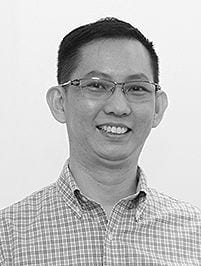Introduction by Mark GAN
Centre for Development of Teaching & Learning (CDTL)

Image by DC Studio on Freepik.
In November 2022, a chatbot capable of generating plausible-sounding, human-like text through user prompting—ChatGPT—was released for general public testing and use. The immediate effect on education was felt on a global scale, with some universities adopting counter-measures in light of the concern that the tool may have negative or unforeseen impact on the way students learn, while others adopted a more cautious approach to explore and develop ways to uncover its potential for teaching and learning.
What is generative artificial intelligence (also known as generative AI, or GenAI)? How will GenAI change higher education? Will ChatGPT promote or hinder creativity, critical thinking, and authenticity? How to design assessments or assignments in a ChatGPT age? All these and many more questions offer a fertile ground to explore the complex landscape of GenAI in higher education.
The ensuing global commotion about generative AI has also affected our universities in Singapore. In this Special Issue of Teaching Connections, we invited colleagues from four local universities to share their views and reflections on how their respective institutions and more importantly, the teachers and students, come together to respond to the impending influence of generative AI. We hope that these personal observations and narratives will help shed light on the complexity of navigating the generative AI revolution, i.e., to harness its potential as well as to avoid the pitfalls.
Here are their stories:
ACKNOWLEDGEMENTS
We take this opportunity to express our deepest gratitude to the organisers of the HERDSA Closed-door Event for Academic Developers held on 4th October 2023 (in conjunction with the NTU Annual Learning and Teaching Conference: From Good to Great 2023) for providing the catalyst to this Special Issue, by igniting professional conversations amongst colleagues from different universities on this complex yet overriding issue.
 |
Mark GAN is an Associate Director at CDTL, and has been involved in a wide variety of higher educational initiatives and programmes to enhance professional development of NUS faculty, such as courses for developing a Teaching Portfolio and writing of teaching inquiry grants. His research interests include feedback and assessment, and the impact of academic development work on teaching and learning. Mark has a PhD in Education from the University of Auckland, supervised by Professor John Hattie. Mark can be reached at mark.gan@nus.edu.sg. |

